Mount Desert Island: A Home Movie
Documentarian pieces together story where the record can never be complete
MOUNT DESERT—Jeremy Lunt’s first project that he worked on was a true crime mob thriller. That might seem a far cry from his newest project about Mount Desert Island, but Lunt, who grew up here, is all about creating story while using multiple perspectives—perspectives that aren’t necessarily his own.
Mount Desert Island: A Home Movie, Lunt’s upcoming feature documentary, is told “entirely through home movie footage of those who have lived, worked, and visited the island,” he wrote on Facebook.
The film is still in editing and he hopes it will be finished in 2025. It will be on DVD/Blu-Ray and streaming. He also hopes for screenings on MDI.
For more than ten years, Lunt has pulled together video and film reels from archives, dusty attics, eBay auctions, and yard sales. It tells the story of life on Mount Desert Island in the last century.
“The act of creation forces you to look at something from multiple perspectives, and that’s especially true with filmmaking, because every single character, whether real or fictional, is coming at the story with their own viewpoints, backstory, and goals. Some of the most valuable experiences you can have as an artist are when you’re forced to look through the lens of an experience that isn’t yours, an experience that may be completely opposite of anything you’ve lived through,” Lunt said.
His first project was to shoot a making-of documentary for that true crime mob thriller.
“The film itself was written and produced by a man who was a former Colombo crime family member. He was an older fellow, he’d gone into the Witness Protection Program back in the 80s and his life, and his whole family’s life, had been completely turned upside down,” Lunt said. “He was still carrying a lot of that trauma around with him, including a heavy burden of grief from the death of his best friend, who’s been murdered back in the 70s in a dispute with another mobster. And for this man, the actual act of producing the movie—which I documented in my making-of video—was itself cathartic, helping him let go of a lot of his pain. And that’d the kind of amazing thing you only get to witness when people are able to tell their own stories in their own words.”
Catharsis. Creation. Stories. Perspectives. Lunt’s newest project, Mount Desert Island: A Home Movie, a documentary, deals with it all in a unique way that collates others’ images and videos of the island and their moments there.
It wasn’t one specific movie that sparked Jeremy Lunt’s love for movies any more than one specific event that made him love the island community that he grew up in.
Instead, he says it was really a progression over time.

”I was a nerdy child who didn’t play sports or have much interest in the outdoors, so watching movies was really what I would do after school, on weekends, during school breaks, etc.,” Lunt said. “Eventually, as I got older, I saw more and more of the art form and I started being able to discern the good works from the bad, and at that point it started to feel like the film business might just be a natural fit for me. When I was a teenager, I toyed with the idea of pursuing other careers, but I kept coming back to film no matter what.”
This project, as well as Summer Colony, focuses on Mount Desert Island, which is where Lunt grew up. He keeps returning both to visit but also in his art.
“This is a place where multiple worlds meet, and that creates new experiences. It also creates friction. And in turn these factors create interesting stories,” Lunt said. “Obviously there’s the relationship between the local people and the summer residents, and also the relationship between the tourists and everyone else. There are also the people who come from all over the world to work here. More than once I can remember, pre-COVID and pre-Ukraine War, walking down the street in Bar Harbor and hearing people speaking in Russian, probably because they were here as summer guest workers.”
That friction makes for good story, but part of what compels Lunt is more altrustic.
“I think there’s also an element of wanting to give back to the community in my own way, by telling its stories and helping it grapple with the issues facing it,” Lunt said. “My family has a tradition of public service, of course; I think I’d be pretty useless at a selectman’s or planning board meeting, but I can at least give back to the community in a way that fits my own skill set.”
Lunt’s father is Mount Desert Town Manager, Durlin Lunt, Jr. His mother is Jean Lunt.
After he graduated college, Jeremy Lunt had a couple of local media jobs, one teaching video production at a summer camp, the other one a job at a Portland television station.
“After undergoing a breakup with my girlfriend at the time, and because there was so little room for advancement in the media sphere in Maine, I ended up in Los Angeles, where I lived for eleven years,” he said. “The most formative part of that experience was learning film distribution and international film sales, which was really the missing piece of the puzzle, and which I specialized in for the last five and a half years that I lived in LA. It’s not the type of experience that you get in any school, nor is it the type of experience that most filmmakers go out in search of, and so getting to do that in a hands-on way was extremely valuable.”
So, much about western narrative is about yearning and goals, we create the scene in a three-act-structure (usually) as the character strives for something and obstacles (or their own inner lies) keep them from their inner yearning or super objective or even the more immediate, tangible yearning in the scene.
When creators like Lunt make a piece like Summer Colony or Mount Desert Island: A Home Movie, a documentary, they have to create an overarching narrative that ties all the stories together.
It’s a bit like a puzzle.
“The process of creating the overarching narrative really depends upon the project, both in terms of the subject matter and the materials available to work with. I’ve done projects where I’ve documented an event more-or-less in real time, and it’s a totally different dynamic than when you’re looking back on historical events that could be decades or centuries in the past,” Lunt said.
With Summer Colony, the process was fairly linear, he said.
“For years, it had been obvious to everyone in the community that there was a problem with year-round habitation of Northeast Harbor. Furthermore, many of the root causes were also understood, but not necessarily understood in relation to each other,” Lunt said. “So the main difficulty with building that narrative was finding ways to explain the linkage between the different events and policies that brought us to where we were, and I was fortunate because I could build upon the great body of research done by local scholars before me.”
However, Mount Desert Island: A Home Movie is less about numbers and facts and statistics and more about capturing the feeling of how life was lived in the community over the past century, he said.
The idea behind the movie, he said on its social media account, “was to tell the story of life on MDI over the past century but to tell it in a way that replicated, as closely as possible, what it was like to see that story through your own two eyes.
It’s all movie footage that was shot on different formats throughout the ages, even iPhones.
“Because the theme of the film is telling a story entirely through people’s home movie footage, so far, it’s felt less like a scholarly endeavor and more like an archaeological expedition because you’re trying to piece together a story from fragmentary bits, and where the record can never be full and complete,” he said.
All images via Lunt
LINKS TO LEARN MORE
The Facebook page about the movie, which is not yet out.
To rent/buy Summer Colony, an earlier documentary of Lunt’s, click here.
The Summer Colony trailer:
An interview with Jeremy Lunt:
If you’d like to donate to help support us, you can, but no pressure! Just click here.
If you’d like to sponsor the Bar Harbor Story, you can! Learn more here.


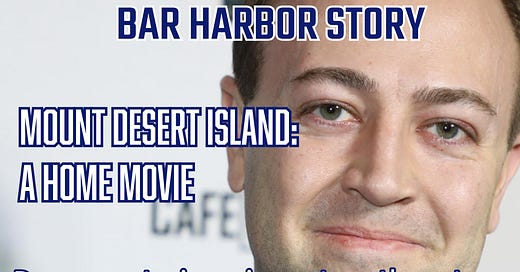



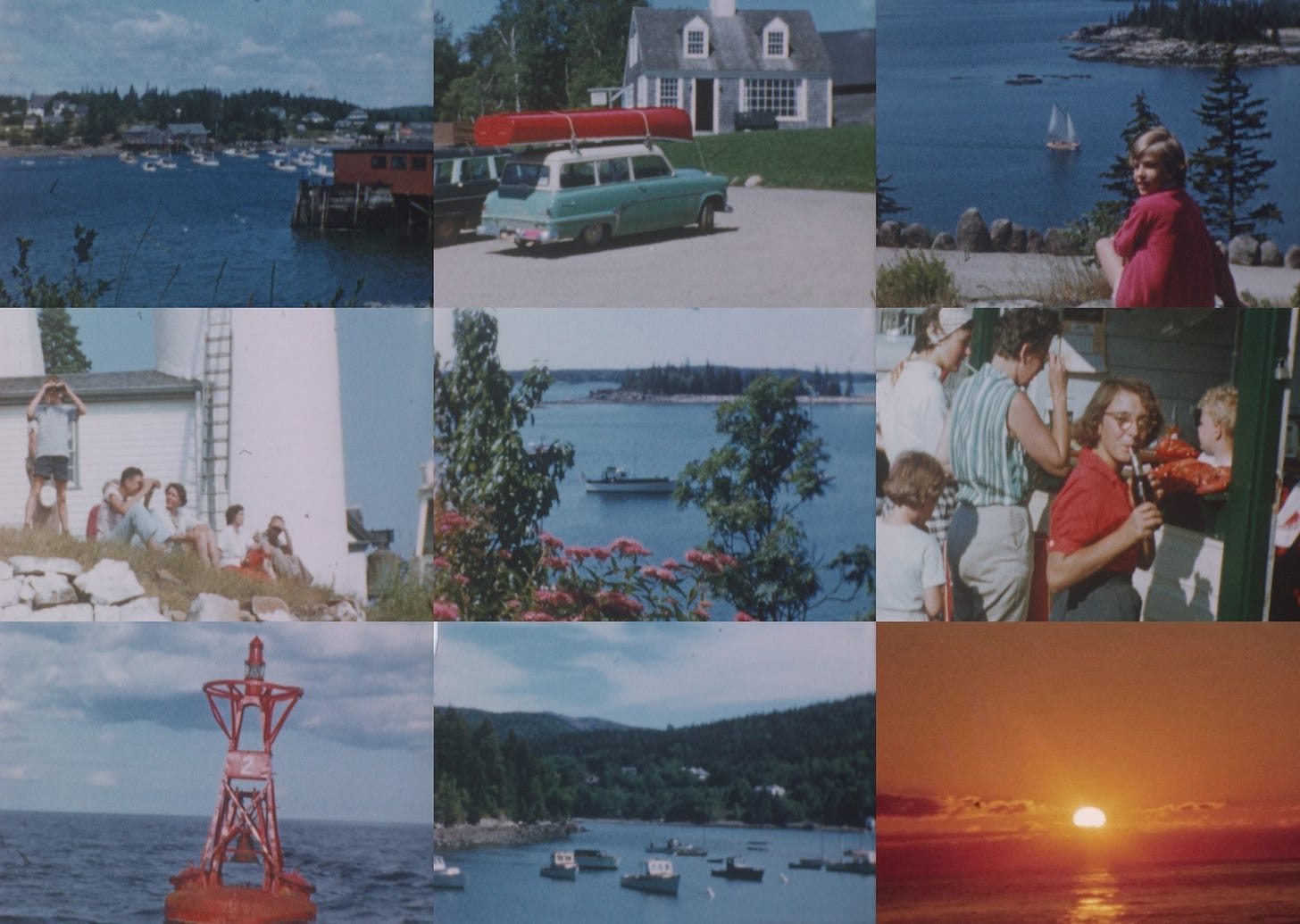
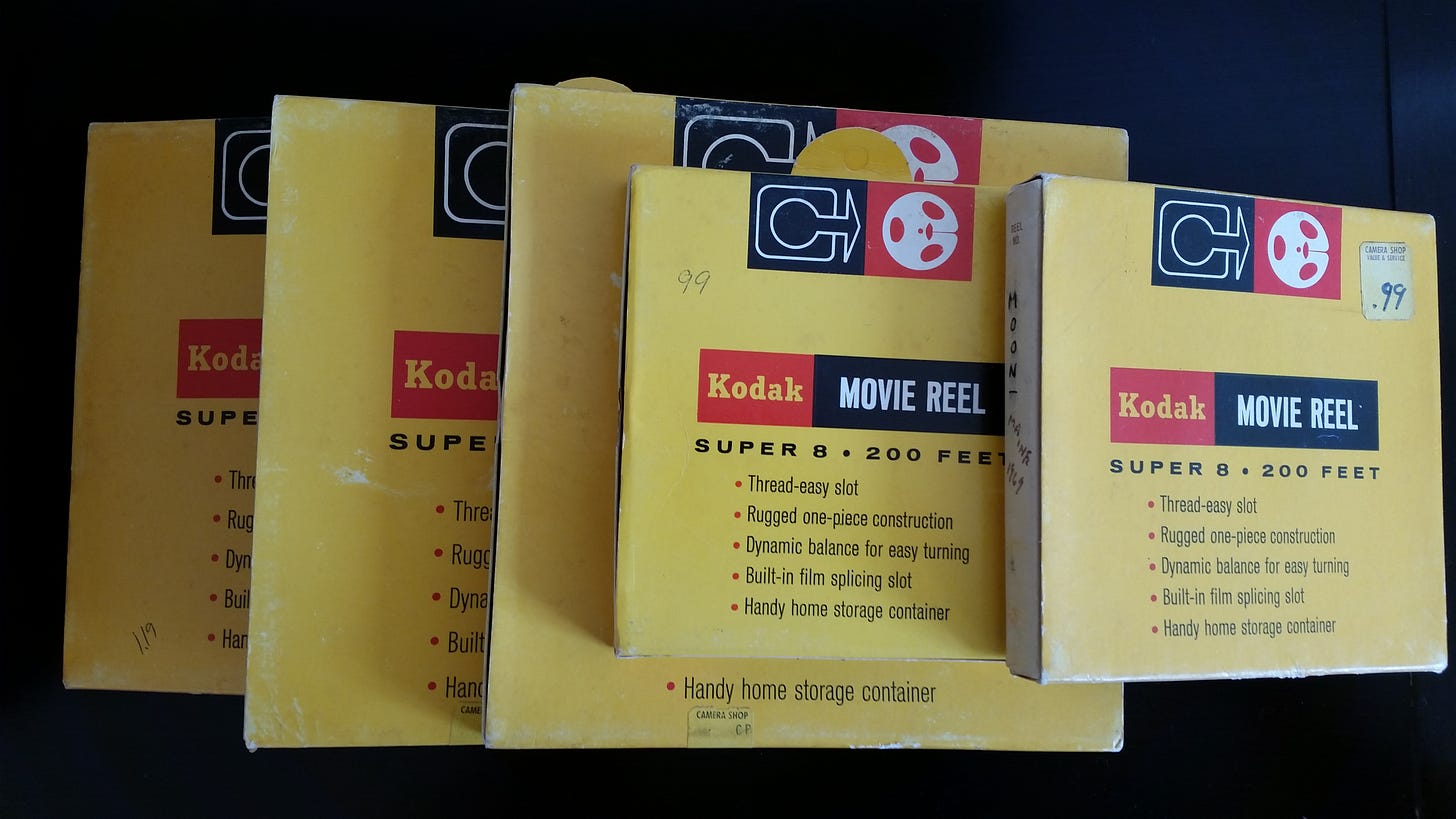
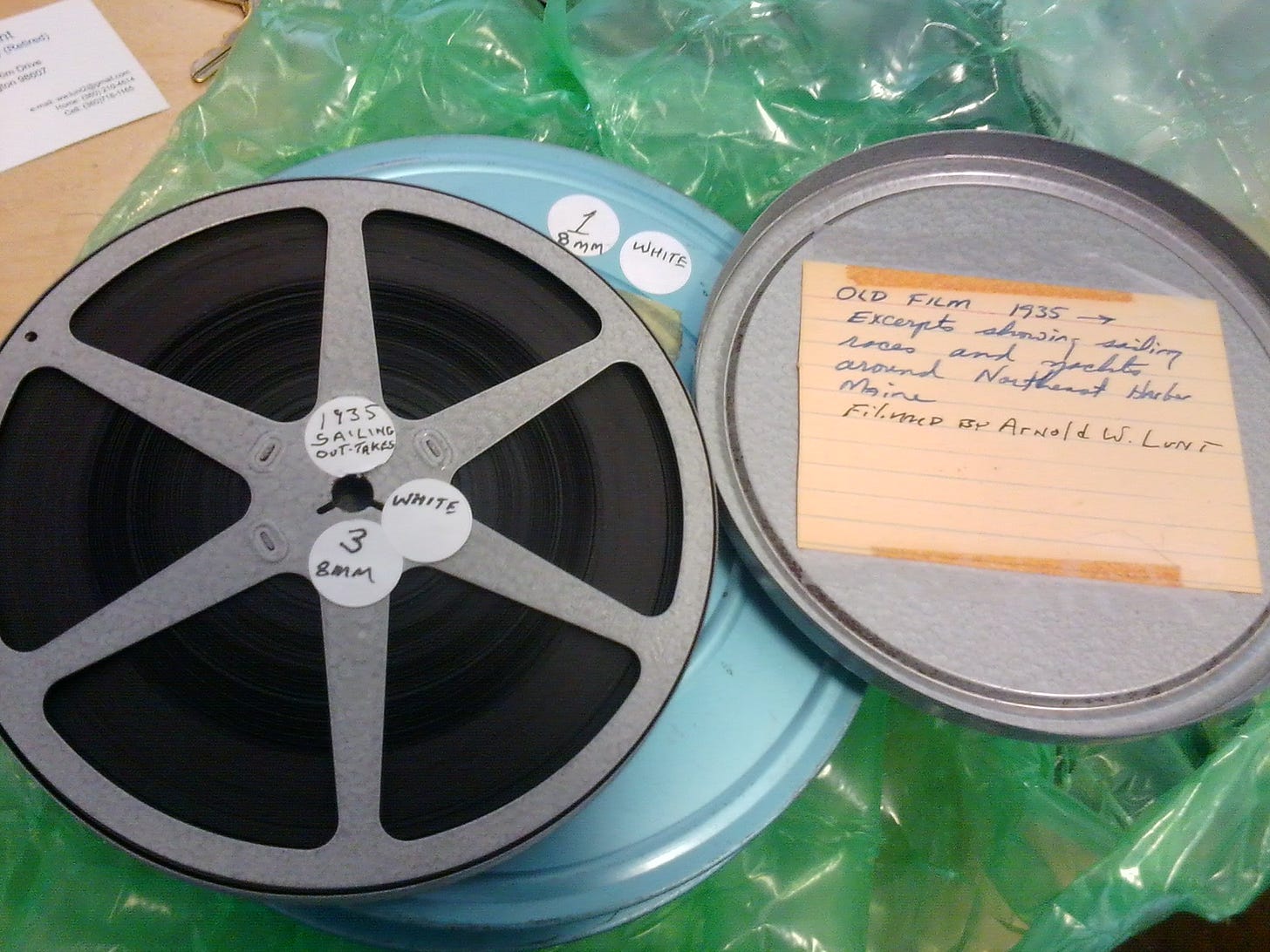
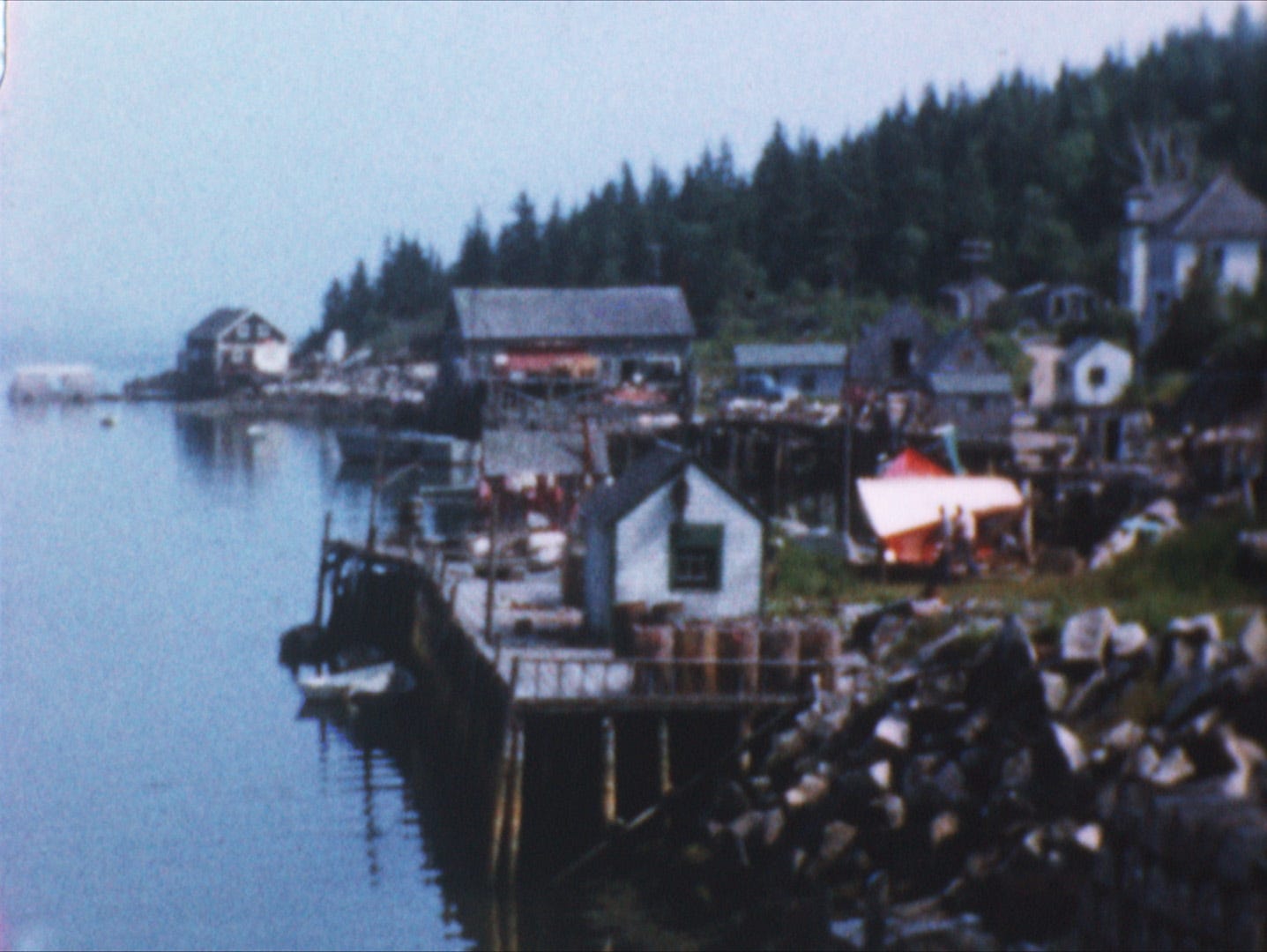
I think the line about his heritage should say that "he is the son of Durlin and Jean Lunt - not just the mention of his father who is Town Manager.
Do "Summer Colony" and "Mount Desert Island: A Home Movie" concentrate on just Northeast Harbor and the other villages in the Town of Mount Desert or does it also include the summer colonies and history of other towns and villages on MDI? If not, it would be a very incomplete story of our MDI!